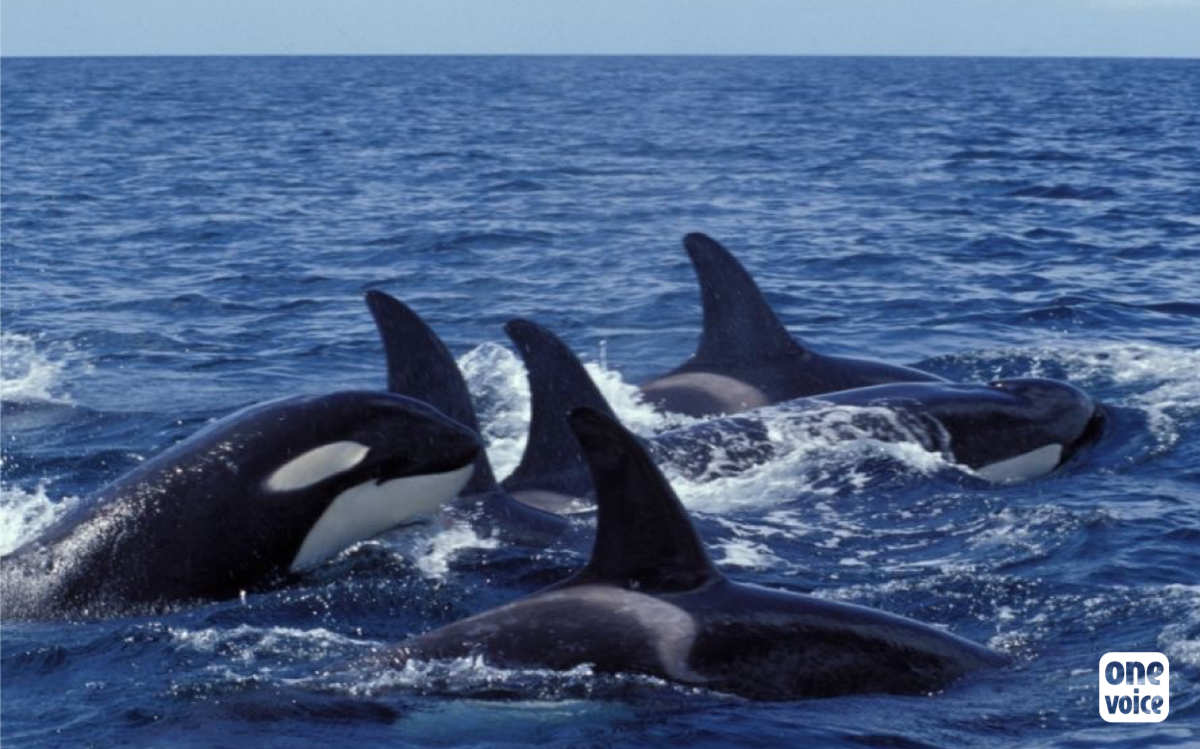

Action for the namibian orcas
A request has just been issued to Namibia by China to capture hundreds of marine mammals in its seas to fill its dolphinariums. We must convince Namibia to say no.
The transporters are waiting
Ryazanovka’s bow lines up alongside a deserted quay, in the Namibian port, Walvis Bay. The team on board keep boredom at bay by playing cards under the burning South African heat. Their mission: to capture ten orcas, a thousand fur seals, five hundred African penguins and almost two hundred dolphins of various species, without counting the sharks. The Ryazanovka is notorious: this is the blue-sided boat which captured three wild orcas for China in the Okhotsk Sea in the extreme Russian Orient some years ago. But the sailors who are smoking on the decks aren’t going anywhere; they are waiting for the go-ahead to start the hunt.
To satisfy the Chinese ‘Moloch’s’ appetite
Welwitschia Aquatic and Wildlife Scientific Research Ltd, who arm the vessel, are also waiting for the green light: authorisation from the Namibian government. Owned by a Chinese businessman registered in Namibia, this company works hand in hand with a Peking-based company, who specialise in raising captive animals.
Hiding behind this vessel, the captivity industry is prepared to devastate the wild fauna that still flourishes in the Benguela current, along the Namibian desert coastline. China will soon have 53 marine parks. Some are colossal, like the Chimelong Ocean Kingdom, whilst others are tiny, tucked away in shopping malls with polar bears and belugas on display behind glass panes. Having ‘sampled’ the Zimbabwean elephants, China is now turning its attention to Namibia. The Moloch’s appetite is insatiable.
Namibia’s choice
The Namibian government could well be tempted by the request. China is committed to opening a military base in the country and is promising subsidies to revive the fishing industry. According to them, the surplus of marine mammals in its waters is affecting the fishing! Namibia should be praised for its efforts developing eco-tourism, but it is ambiguous in its position regarding its wild fauna. It knew how to preserve its environment but it authorised trophy hunting and is advocating the opening of the ivory market. This previously German colony’s decision is far from being made.
Dealers under the spotlight
Luckily, in order to preserve the wildlife that they love and protect, small local associations are speaking out to confront the government and to demand that it renounces this disastrous industry. They are small when compared to the Chinese promises, but all of the world can stand alongside them, thanks to the magic of social networks. The whole world is looking on, horrified at these secret capture operations.
One Voice is 100% behind the Walvis Bay activists is asking you too to support them. Just a small message will help, addressed to the Namibian Fishing Minister, Dr. Maurihungirire. Such as:
“Please don’t sell the remaining cetacean populations to China. The riches of Namibia are its flora and fauna. Ecotourism is your future”
Together, we can prevent this catastrophe!